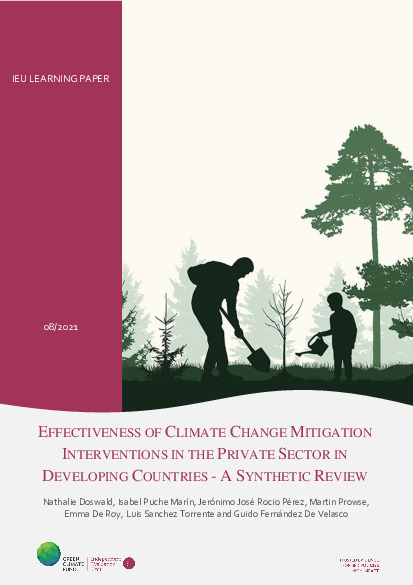Synthetic review: Effectiveness of climate change mitigation interventions in the private sector in developing countries

Synthetic review: Effectiveness of climate change mitigation interventions in the private sector in developing countries
The results of the synthetic review show that the evidence on this topic is still limited and spread across various sectors and interventions, with most evidence in the energy, industrial and agricultural sectors. The majority of the 32 reviewed studies found significant positive effects from the interventions regarding climate change mitigation and other co-impacts. However, the limited number of causal studies and the limited external validity in a significant number of papers pose significant challenges for drawing generalizable conclusions. The review allows the GCF Secretariat to consider allocating funds in line with the current evidence base.
- Introduction
- Approach
- Results
- Critical Appraisal
- Conclusions